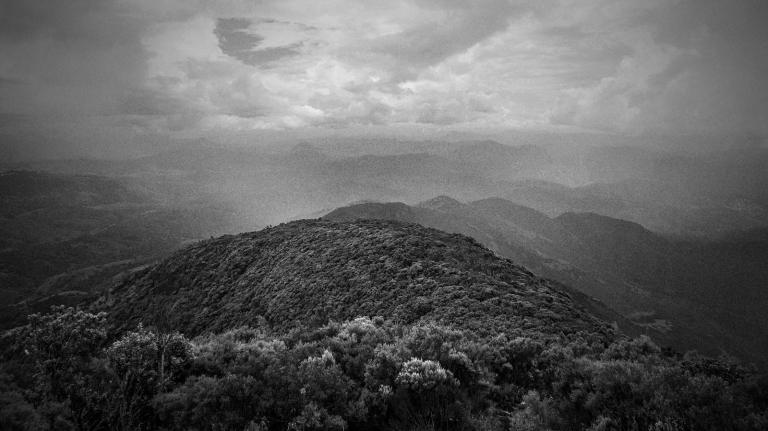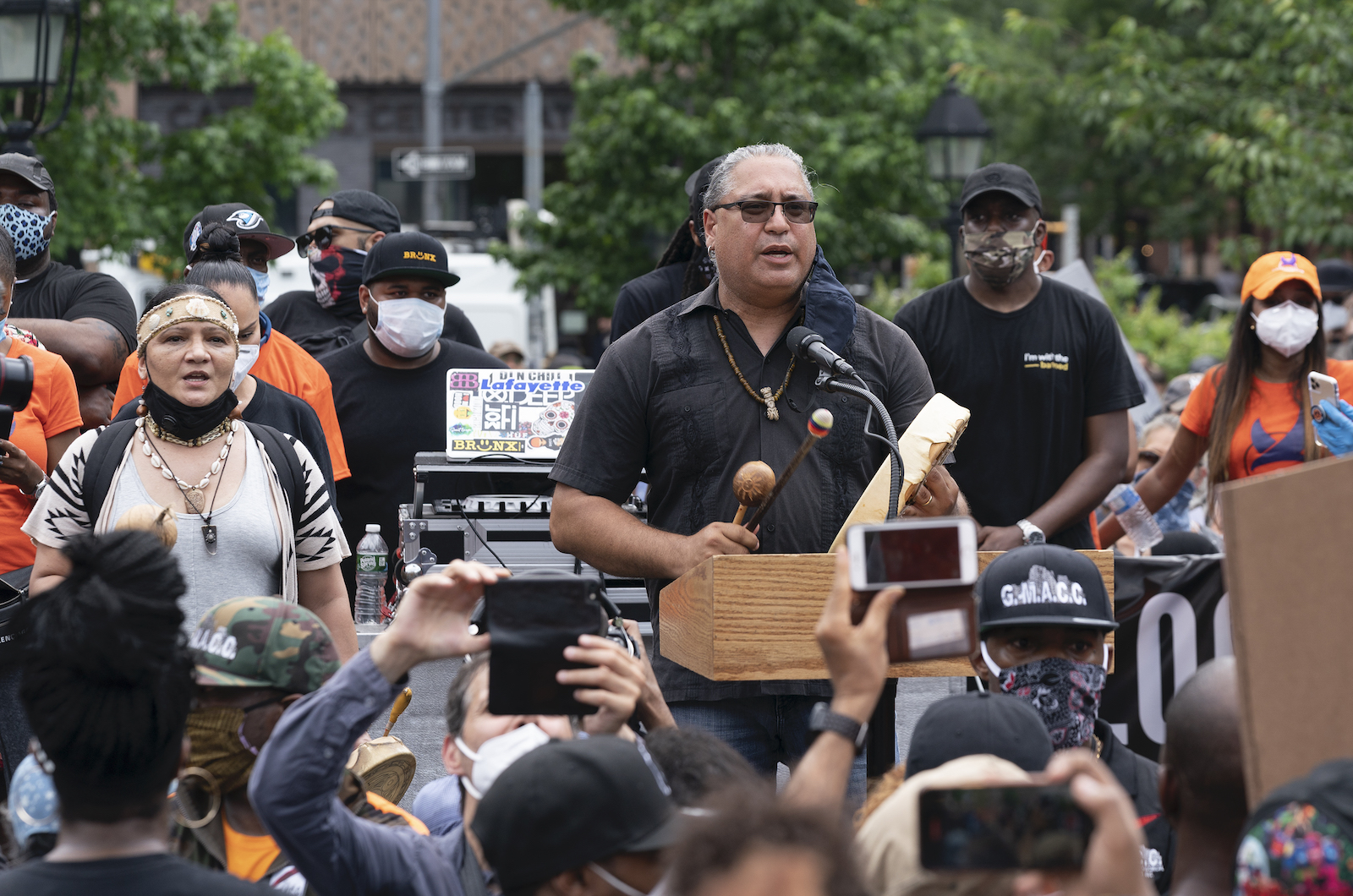This story is published as part of the Global Indigenous Affairs Desk, an Indigenous-led collaboration between Grist, Indian Country Today, and High Country News.
In 2017, Hurricane Maria hit the Caribbean, destroying homes, killing thousands, and driving many from the region. Indigenous Taíno people in Puerto Rico were on the front lines of the disaster, which has since been compounded by environmental violence in the form of toxic military waste, luxury development on cultural sites, and other threats. But the Taíno struggle to get those concerns acknowledged by the U.S. and other governments. Now representatives are at the United Nations Permanent Forum on Indigenous Issues (UNPFII) in New York to call attention to their situation.
“If we’re not getting visibility or any kind of recognition at the national level, we have no choice but to take it outside and try to build that visibility for our people,” said R. Múkaro Agüeibaná Borrero, President of the United Confederation of Taíno People.
The Taíno people are Indigenous to the Caribbean and live in Puerto Rico, Cuba, the Dominican Republic, the U.S. Virgin Islands, and more. When Christopher Columbus made landfall in 1492, the Taíno were the first people he met. Today, Puerto Rico is an unincorporated territory of the United States, which means that it is neither an independent country nor an official state. Puerto Rico has a non-voting member of Congress and does not have electoral college votes in presidential elections. Because of this colonial relationship, the Taíno have few platforms to make their concerns heard.
International forums like the UNPFII are a rare opportunity to directly engage with officials from the United States and other countries — providing space for the Taíno to advocate for policies that will help their communities. “There is a narrative that Taíno people were wiped out,” Borrero said. “So we have to make statements at the international level, to say ‘wait a minute, we are here.’”
Andrea Carmen, Yaqui Nation and Executive Director of the International Indian Treaty Council, says that for the Taíno, Puerto Rico’s political status presents challenges for the Taíno. “What makes them unique is they are still residents of a colony,” she said. Carmen added that, like the Taíno, most Indigenous peoples around the world also lack state recognition, which makes the UNPFII and other international venues even more important in their fight for rights.
In a statement to the forum, Tai Pelli, another representative from the United Confederation of Taíno People, highlighted the environmental and climate crises facing Indigenous peoples in Puerto Rico. Increasingly powerful storms have destroyed homes and driven many from the island while illegal toxic waste dumping and military waste contamination are also serious issues. On the island municipalities of Vieques and Culebra, the U.S. military conducted weapons testing for over 60 years, leaving unexploded ordinance and dangerous chemicals behind. “Increasing cancer rates and other non-contagious diseases are a direct result of the environmental injustices our people confront every day,” Pelli said.
Pointing to luxury hotels and other development projects on culturally significant sites like the Dry Forest and the Kaguana Ceremonial Center, Pelli called on the UN to confront the issue with UNESCO, which oversees some of the sites, and demanded a review of UNESCO’s protected areas mandate and greater transparency. “The wrath of greed and uncontrolled development are beginning to seem as dangerous as the hurricanes, earthquakes and pandemic that we are still trying to survive,” she said.
The United Confederation of Taíno People also called attention to Taíno language revitalization efforts, which will lead to the publication of the first Classic Taíno Dictionary and Grammar Guide later this year. Borrero noted, however, that the International Decade of Indigenous Languages must not overlook Indigenous Caribbean languages and called on the Permanent Forum to give special attention to insular Caribbean Indigenous Peoples, including those in both self-governing and non self-governing territories.
“We’re not only raising the visibility of who we are within the U.S.,” he said. “We’re also raising the visibility of our people for other Indigenous peoples so that we could build that solidarity regionally and internationally.”




